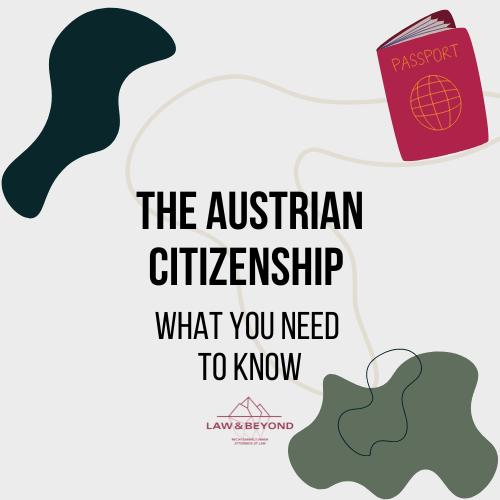Pathways to Austrian Citizenship: What You Need to Know
Are you curious about obtaining Austrian citizenship? Whether you hail from a country outside the European Union or have familial ties to Austria, there are several factors to consider when contemplating this big decision. This post will provide you with an overview of the requirements for obtaining Austrian citizenship, tackling key concerns such as residency duration, language proficiency, cultural knowledge, and the impact of a criminal record. We’ll also explore the rules regarding citizenship for children and the question of dual citizenship. Let’s dive in!
Residency Requirements
First and foremost, how long do you have to be a legal resident in Austria to apply for citizenship? As a rule, Austria requires 10 years of continuous legal residence before you are eligible to apply. It’s important to note that there are exceptions to this rule for certain categories of individuals, including those who were born in Austria, recognized refugees, and individuals who have made notable contributions to Austria. A large group of people who qualify for expedited citizenship are those with 6 years of uninterrupted legal residence in Austria and German proficiency level B2 may also apply.
Language Proficiency
Austria values linguistic integration, therefore, applicants for citizenship must provide evidence of German language proficiency. In general the level required is A2 under the Common European Framework of Reference for Languages. A higher level of proficiency of the German language will open an expedited path to citizenship (eg citizenship after 6 years with German level B2).
Cultural Knowledge
A fundamental understanding of Austrian history and society is also a requirement for citizenship. Applicants must pass a citizenship test that evaluates knowledge of the democratic system, history, and the social norms and customs of Austria. Exceptions apply for people who at least spent part of their life in the Austrian education system.
Citizenship for Children
There are certain provisions for children of Austrian parents. A child born to at least one Austrian parent generally is entitled to Austrian citizenship at birth, regardless of the place of birth.
Please note that – unlike in the United States, a child born in Austria does not automatically receive Austrian citizenship. The exception is if the child would otherwise be stateless.

Dual Citizenship
Austria generally does not allow dual citizenship, with few exceptions for individuals who obtain two citizenships at the time of birth. Dual citizenship is also available to family members of people persecuted by Austrian fascism. If you are contemplating maintaining dual citizenship, it’s crucial to seek professional legal advice.
Compulsory Military Service
Male Austrian citizens are generally subject to six months of compulsory military service. Alternatively, men may choose to do civil service for nine months.
This compulsory service may extend to males who acquire Austrian citizenship, depending on their age and other factors. Accordingly, you should explore whether becoming a naturalized Austrian would involve military/civil service for you.
Impact of Criminal Convictions
Criminal convictions or serious administrative offenses can indeed affect chances of obtaining Austrian citizenship. Generally, applicants must demonstrate good character, which includes not having a criminal record. It’s advisable to consult with a legal professional if this situation applies to you.
How can Law&Beyond assist with the Austrian citizenship?
Obtaining Austrian citizenship is a significant commitment that requires extensive preparation and knowledge of Austrian laws and society. We hope that this blog post has helped illuminate the path towards Austrian citizenship. Please do not hesitate to get in touch with us if you need further assistance or clarification on this complex process. Good luck!


